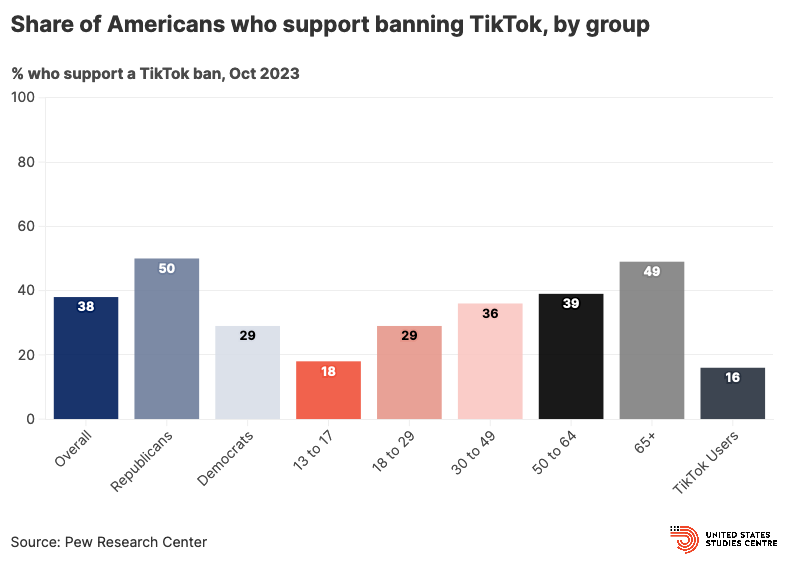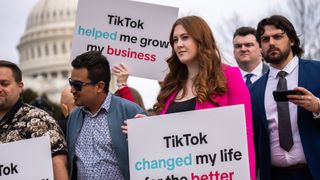On 13 March 2024, the US House of Representatives passed the Protecting Americans from Foreign Adversary Controlled Applications Act which would require the Chinese-owned company ByteDance to sell its popular app TikTok or face a US-wide ban. Bolstered by national security concerns, the act passed with rare bipartisan consensus (352-65) and has the support of President Joe Biden, although it still needs a majority in the Senate to become law.
TikTok launched in 2017 and exploded in popularity. There are now reportedly 149 million TikTok users aged 18 and above in the United States, the app’s largest market. In 2023, 33 per cent of American adults had used TikTok, up from 21 per cent in 2021.
But as its popularity has grown, so have concerns around the large-scale collection of personal data that could potentially be shared with the Chinese Government. Many have called for the app to be banned completely in the United States. Notably, TikTok is already banned nationwide in the world’s two largest countries, India and China (ByteDance operates a similar app, Douyin, in China), and several other states, including Australia, have introduced partial bans on the social media site.
Who uses TikTok?
TikTok users are disproportionately young Americans. While the app is the fifth-most popular in the United States overall (behind YouTube, Facebook, Instagram and Pinterest), it is the second-most popular site for American teenagers (above Facebook and Instagram). Fifty-eight per cent of American teenagers said they used TikTok daily, with some US officials concerned about the influence of the app on disinformation and political outcomes.
%20(1).png?w=320&h=231&auto=format)
Do Americans support banning TikTok?
Support for the transfer for TikTok’s ownership to a US-based company declined in 2023. In October 2023, 38 per cent of Americans surveyed by Pew Research Center supported banning TikTok, down from 50 per cent in March 2023.
- 50 per cent of Republicans supported the ban versus 29 per cent of Democrats.
- 29 per cent of 18-29 year-olds supported the ban.
- 16 per cent of TikTok users supported the ban.
So, while US politicians worry that ByteDance may allow the Chinese government access to the personal data of US residents, Americans themselves seem less concerned.





